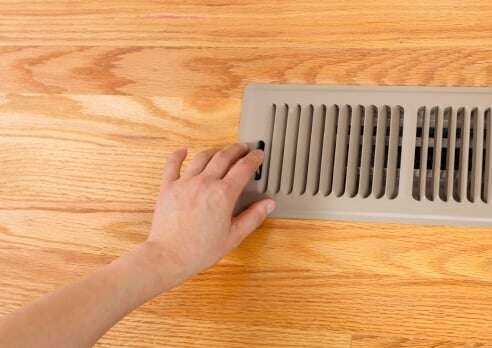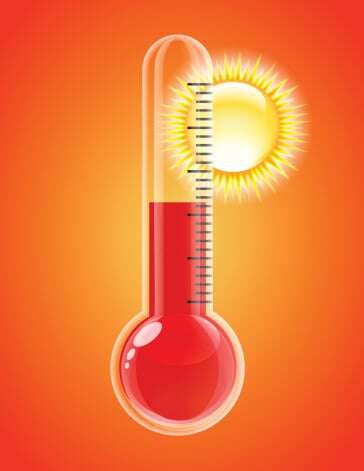 It's one thing to crack a window open in your car when you have the air conditioner running. After all, there's something to be said for ventilation.
It's one thing to crack a window open in your car when you have the air conditioner running. After all, there's something to be said for ventilation.
It's something else again to crack all the windows open in your home when you have the air conditioning running. After all, there's something more to be said for wasting energy – and a lot of it. But will closing vents in unused rooms help cool your house better?
On balance, this idea sounds like it has some merit – if, that is, the air that is blocked from one room or rooms because of closed vents simply skips over to a room or rooms with open vents.
And therein lies the problem: This is not the way your duct system works. In a nutshell, when cool air comes rushing through a duct, only to be met by a blocked vent or register, much of the cool air stays right where it is. And it definitely doesn't travel to another room or rooms.
So in the end, this perfectly logical scenario fails to achieve two objectives: it will not cool a home any better and – if you had hoped to reduce your electric bill – it will not save you a penny.
Study clears the air
A comprehensive study on the issue conducted by no less an authority than California's own Ernest Orlando Lawrence Berkeley National Laboratory actually concluded that “register closing led to increased energy use."
How's that? Air pressure builds up in your ducts as cool air tries to travel through a register but is blocked from doing so. The air wants to go somewhere, and some of it does: through cracks and gaps in ducts that aren't sealed or connected properly – and most homes have them somewhere. Some pent-up air also escapes through floor activities. Combined, the laboratory considered these energy losses to be “significant.”
One proviso doesn't change the bottom line
The consequences can become worse as more registers are closed, the laboratory said. Researchers found that closing “too many registers” – or more than 60 percent of those in a home – resulted in air flow resistance problems that could damage an air conditioning system and potentially lead to costly repairs, especially if the system's coils freeze.
The laboratory included one interesting proviso: “Closing registers farthest from the air handlers caused fewer leaks and tended to affect only the closed off branches, but closing registers nearer the air handler tended to increase duct pressures the most and cause air leaks throughout the whole system.”
Still, this finding wasn't compelling enough to change the laboratory's bottom-line conclusion: “The register closing technique is not recommended as a viable energy saving strategy for California houses.”
You still have options
So what can you do to keep your home as cool as possible and save money on your summer energy bill? For starters, consult these blog articles for many informative air conditioning articles and easy-to-implement ideas.
Before closing any vents in your home:
- Ensure that your ducts are properly sealed and connected. The U.S. Environmental Protection Agency estimates that most homeowners lose 20 percent of the cool air they're paying for right through their home's ducts. But this is an average; many homes lose even more. Investigate and fix what you can and then contact an air conditioning service company to inspect your ducts thoroughly.
- Ask for a recommendation of which vents (if any) in your home make sense to close without placing stress on your ducts or your HVAC system. This is best determined only after seeing how your ducts are connected and how they have been installed.
- Consider a zoned system, in which a home is broken into zones for efficient heating and cooling. Often, one zone is created for a lower level and another one for an upper level – to capitalize on the naturally divergent temperatures between the two floors. A zoned system depends on multiple thermostats to control dampers within the ductwork.
Experts In Your Home is determined to help you keep your cool this summer, so call us for an air conditioning consultation. We are experts in your home.








